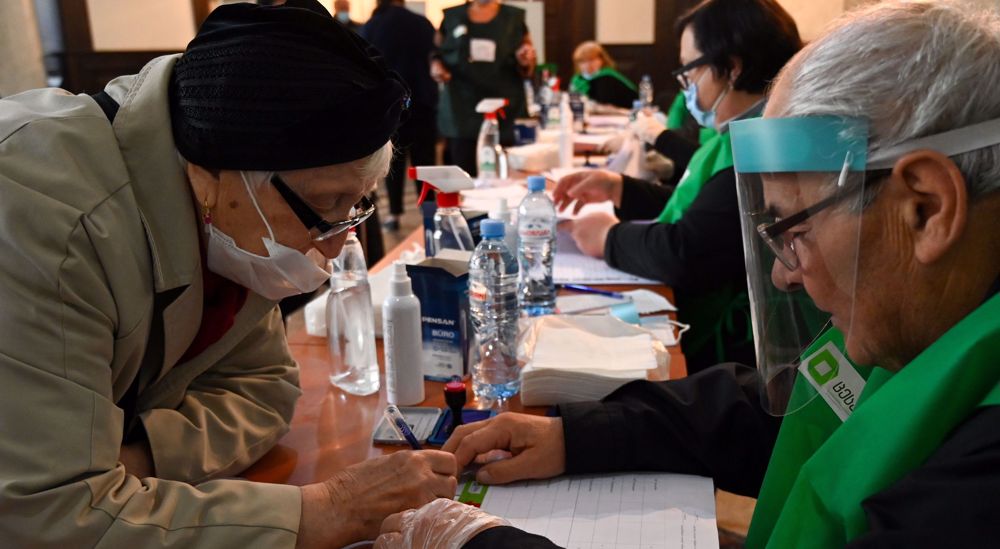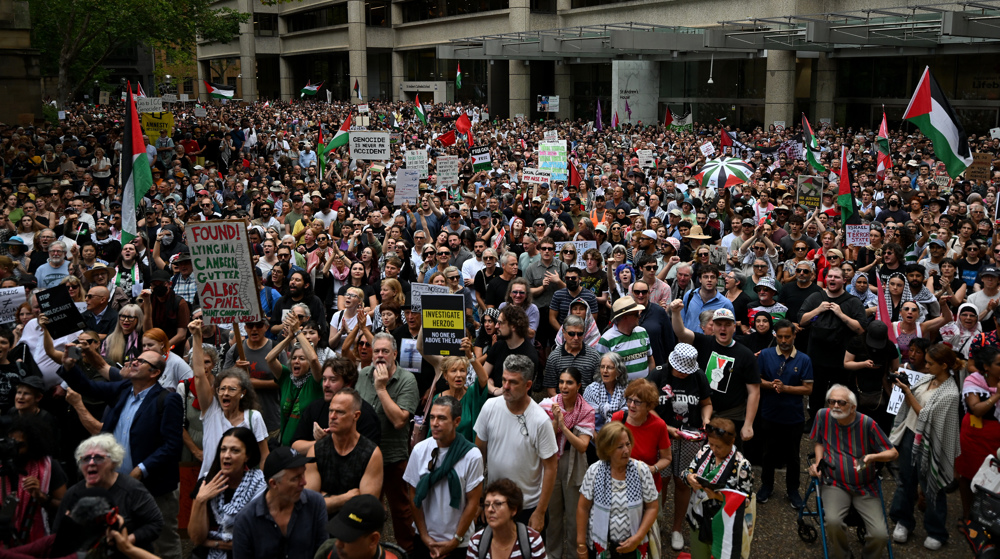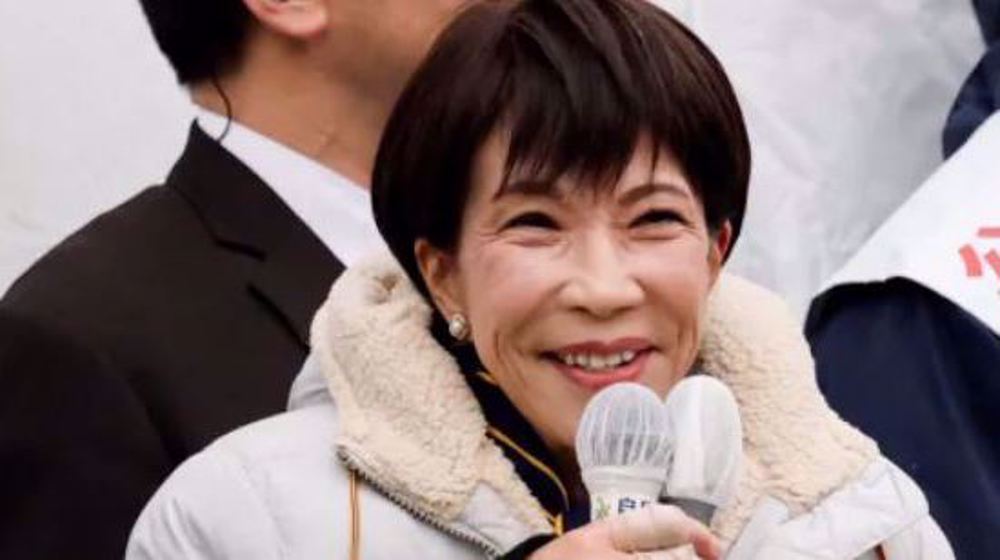West-backed opposition parties in Georgia unite to oust ruling part in polls
People of Georgia have gone to polls in closely challenged legislative elections that have united a diverse mix of opposition groups against the ruling party that is led by the Central Asian country’s richest individual.
Voting opened at 0400 GMT on Saturday and is due to conclude 12 hours later with observers from the Organization for Security and Cooperation in Europe (OSCE) monitoring the tightly contested elections, pitting former Western-backed president Mikheil Saakashvili – who lives in exile in Ukraine – and billionaire ex-prime minister Bidzina Ivanishvili.
Due to Georgia's complex electoral regulations, the final makeup of the 150-seat parliament may only become clear by late November.
In an unlikely show of unity, Saakashvili's United National Movement (UNM) and smaller opposition groups have collaborated to challenge the ruling Georgian Dream Party chaired by Ivanishvili.
This is while elections in the Caucasus country of nearly four million people regularly trigger huge protests, with only one orderly transition of power, following a legislative poll in 2012.
The development came after tens of thousands of Saakashvili supporters waged a campaign rally in Tbilisi's central square on Thursday, dominated by an enormous statue of Saint George, the country's patron saint.
"Our victory is approaching. Georgia has awakened and is ready to choose freedom over oppression, prosperity over poverty, progress over backwardness," Saakashvili claimed while addressing the cheering crowd by video link.
The ex-president was forced to flee Georgia at the end of his second term in 2013, fearing arrest after the country’s prosecutors charged him with abusing power – which he then rejected as politically motivated.
In power since 2012, Georgian Dream Party has seen its popularity decline due to discontent over its handling of economic stagnation and allegation of reverting on its commitment to democracy.
Critics accuse Ivanishvili -- who is widely regarded as being the top decision maker in Georgia -- of persecuting political opponents and building a corrupt system in which private interests permeate politics.
Western governments, meanwhile, have accused the Georgian Dream-led administration in Tbilisi of escalating what they refer to a political witch-hunt.
This is while most of Georgia's opposition parties, including Saakashvili's UNM, held talks on establishing a coalition government in case they emerge victorious in today’s polls.
Both the ruling party and the opposition have expressed confidence in winning the elections, though analysts say the outcome is uncertain, with the opposition enjoying only a slim lead.
Despite the political dominance of Georgian Dream and the UNM, a law introduced this year means smaller groups have a better chance of securing seats, with the threshold for representation at just one percent of the vote.
Trump creating conditions that may lead to 'good deal' with Iran: Netanyahu
VIDEO | Netanyahu fails to dissuade Trump from Iran talks
Iran puts ‘Jam‑e Jam 1’ into orbit in milestone for national broadcasting
‘Colonial eradication of Palestine’: Iran condemns Israel’s West Bank annexation push
Thousands block Melbourne as Israeli president ends contentious Australia visit
Nearly 800 Lufthansa flights cancelled as pilots, cabin crew strike
Pezeshkian: US, Israel exploit Iran’s challenges without genuine concern
VIDEO | Press TV's news headlines











 This makes it easy to access the Press TV website
This makes it easy to access the Press TV website